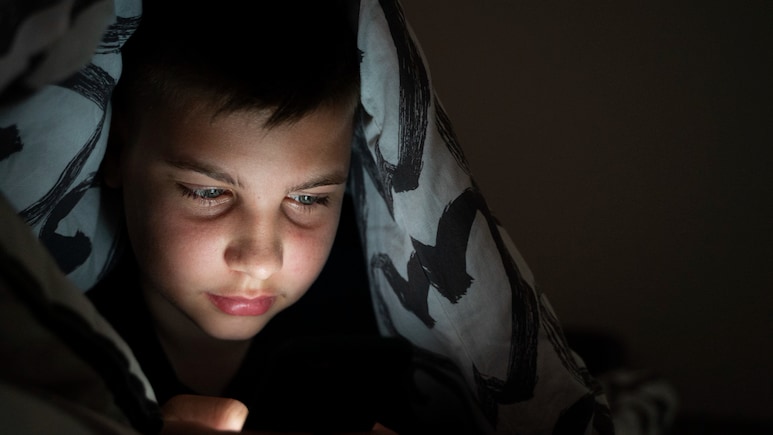
A 10-year-old kid appeared recently on Kaun Banega Crorepati? and his behaviour has led to a storm of reactions online. On the one hand, people are interested in knowing about the so-called Six Pocket Syndrome. One the other, the same kid is being heavily trolled or cyber bullied on the internet. He is now part of a large pool of reported 32% of cyber-bullying cases in India. India has recorded the highest percentage of cyber-bullying cases based on surveys of 24 countries globally. But while this news might not be new, most people underestimate how cyber-bullying takes a toll on the mental health of children and teens. In the larger context, with increasing dependence of children and teens on screens, there is a growing amplification of mistakes that force people online to target children through the medium of the web.
Children and adults suffer from long-lasting mental health issues after cyber-bullying. Additionally, the kind of societal pressures, cultural expectations, and public pressures and perceptions impact the developing brain of children and teens negatively.
According to Dr. Himani Narula Khanna, Developmental and Behavioural Pardiatrican, Adolescent Mental Health Expert, "Cyber-bullying can profundly affect a child's emotional and psychological well-being. So, a developing brain, such a large-scale public humiliation can cause long-term damage leading to manifestation of side effects like anxiety, low self-esteeem, confusion, shame and even depression".
What adults may preceive as "just harmless comments", these comments can make the child feel deeply personal attacked, he is still learning who he is and the public scrutiny is adding additional pressure. Here's everything you need to know about the toll cyberbullying takes on the mental health of children.
What Is Cyber-bullying?
Cyberbullying is a significant snowballing issue in India with the advent of frequent use of digital technologies. The various ways in which cyber-bullying can take place on cell phones, computers, and tablets. And it can occur through social media platforms, messaging platforms, online forums, and gaming communities as well as email. Cyber-bullying involves repeated behavior with an objective to scare, anger, or shame those who are targeted, and it includes:
- Spreading lies or posting embarrassing photos/videos of someone
- Sending hurtful, abusive, or threatening messages
- Impersonating someone and sending mean messages to others
- Sharing personal or private information to cause embarrassment (doxing)
- Cyber-bullying can be damaging to the mental health of children and teens, as it is often persistent (24/7) and can be permanent, as it can be traced to a digital footprint.
- Due to the secretive nature of this type of bullying, it's hard to be noticed by adults.
What Are The Effects of Cyber-bullying on Children and Teens?
The act of targeting someone online, especially if they are children or teens, can leave long-term and severe mental health impacts on children:
- When children and teens suddenly start acting upset over small things, they start feeling embarrassed, ashamed, angry, fearful, sad, hopeless, and powerless. This range of feelings typically indicates that the child or teen is being cyberbullied.
- Children and teens are more susceptible to developing mental health conditions like increased risk of depression, anxiety, loneliness, and low self-esteem.
- The manifestation of physical and behavioral issues takes place, namely difficulty sleeping, changes in appetite, headaches, stomachaches, social isolation, and suddenly losing interest in activities they previously enjoyed.
- In extreme cases, cyber-bullying can escalate to self-harm or suicidal ideation.
How To Prevent Cyber-bullying?
In order to prevent the pervasive nature of cyber-bullying from taking hold of children and teens who are particularly vulnerable to suffering from mental health effects. Be sure to take the necessary preventive measures and report cyber-bullying when it occurs:
- Think before you post: advise yourself and your children to pause and consider what they are posting and consider how it will impact someone else to foster empathy.
- Make sure of privacy settings on social media platforms and messaging so that accounts of children and teens are only visible to friends and family.
- Do not engage; this is a golden rule, as once you engage with cyber bullies, the situation is guaranteed to get worse.
- Protect your personal information by never sharing passwords or personal details so that you can protect yourself and your children by setting parental controls.
- Approach the instance of cyber-bullying by shifting your mindset to a positive space and responding with kindness; reach out to someone who privately is being bullied to be an ally.
How To Report Cyber-bullying?
- Do not respond or engage.
- Keep evidence.
- Report to the platform.
- Talk to a trusted adult.
- Report to authorities
Cyber-bullying in India is deeply embedded, as India has the largest online population. In order to control the significant issue, there are governmental programs like the Cyber Crime Prevention against Women and Children program that offers a portal for reporting cyber-bullying when the nature of the bullying turns very serious and needs to be curtailed by the authorities.
Disclaimer: This content including advice provides generic information only. It is in no way a substitute for a qualified medical opinion. Always consult a specialist or your own doctor for more information. NDTV does not claim responsibility for this information.
References:
Ipsos Group Survey (2024 journal)
Maurya, C., Muhammad, T., Dhillon, P. et al. The effects of cyberbullying victimization on depression and suicidal ideation among adolescents and young adults: a three-year cohort study from India. BMC Psychiatry 22, 599 (2022).
Track Latest News Live on NDTV.com and get news updates from India and around the world

